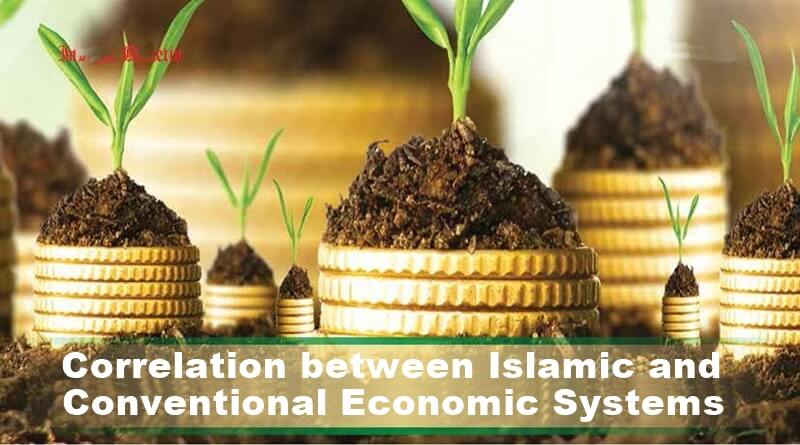
Correlation between Islamic and Conventional Economic Systems

Economic systems are the sole determinants of growth and developments for individuals, the societies as well as nations. This is because they are extremely different in many ways. The key difference is that Islamic economic system is based on Shariah foundation. Thus, all dealing, transaction, business approach, product feature, investment focus, responsibility are derived from the Shariah law, which lead to the significant difference in many part of the operations with as of the conventional.
On the other hand, conventional economic system is essentially based on the debtor-creditor relationship between the depositors and the bank on one hand, and between the borrowers and the bank on the other. Interest is considered to be the price of credit, reflecting the opportunity cost of money.
Islamic economic system is the only principle that provides a system with the true balance between the individual and the community as well as social needs. It did not view the society as simply a grouping of individuals, with no relationship or dependence between them; nor did it view fundamental principles where by the economy should be generated.
Rather, Islam considered the society as a unit composed of individuals living within a specific social order, linked to each other through specific thoughts and ideas, emotions and sentiments. With that fact, it puts forward the best economic principles which are even used currently by many communities.
Economic principles in Islam regulate the economic affairs in such a way as to secure the satisfaction of all the basic needs for the individual and the society completely and to enable each individual to satisfy luxurious needs as much as possible.
For those who are unable to meet their needs, the Islamic state (in our case the secular government) should provide for its people from its own wealth as well as the Zakat ( tax) paid by its citizens. Therefore,Islam secures the rights and the honor of every individual in the society and does not consider the economic problem to be solved as long as there is ever no individual whose basic needs are not met.
Furthermore, Islam designated the ownership as one of three types, public, private, or state. These kinds of ownership are defined by Islam and cannot be altered. Thus,public property cannot become state or private property; private property cannot be confiscated by the state as public property, and so on. Islam thus ensures that the rights of all individuals are protected and the society as awhole is conducive and living in secured environment.
Regarding the ownership of wealth and property, Islam regulated the means by which to obtain the wealth in a manner that allows the individuals to satisfy their needs while still preserving the sanctity of the society.
Thus, Islam prohibited prostitution, the sale of alcohol, and dealing in usury as a means of earning wealth because they lead either to degenerate social behavior or economic injustice.
Islam encourages competition and provides true opportunities by preventing the establishment of monopolies and other forms of economic exploitation.
































